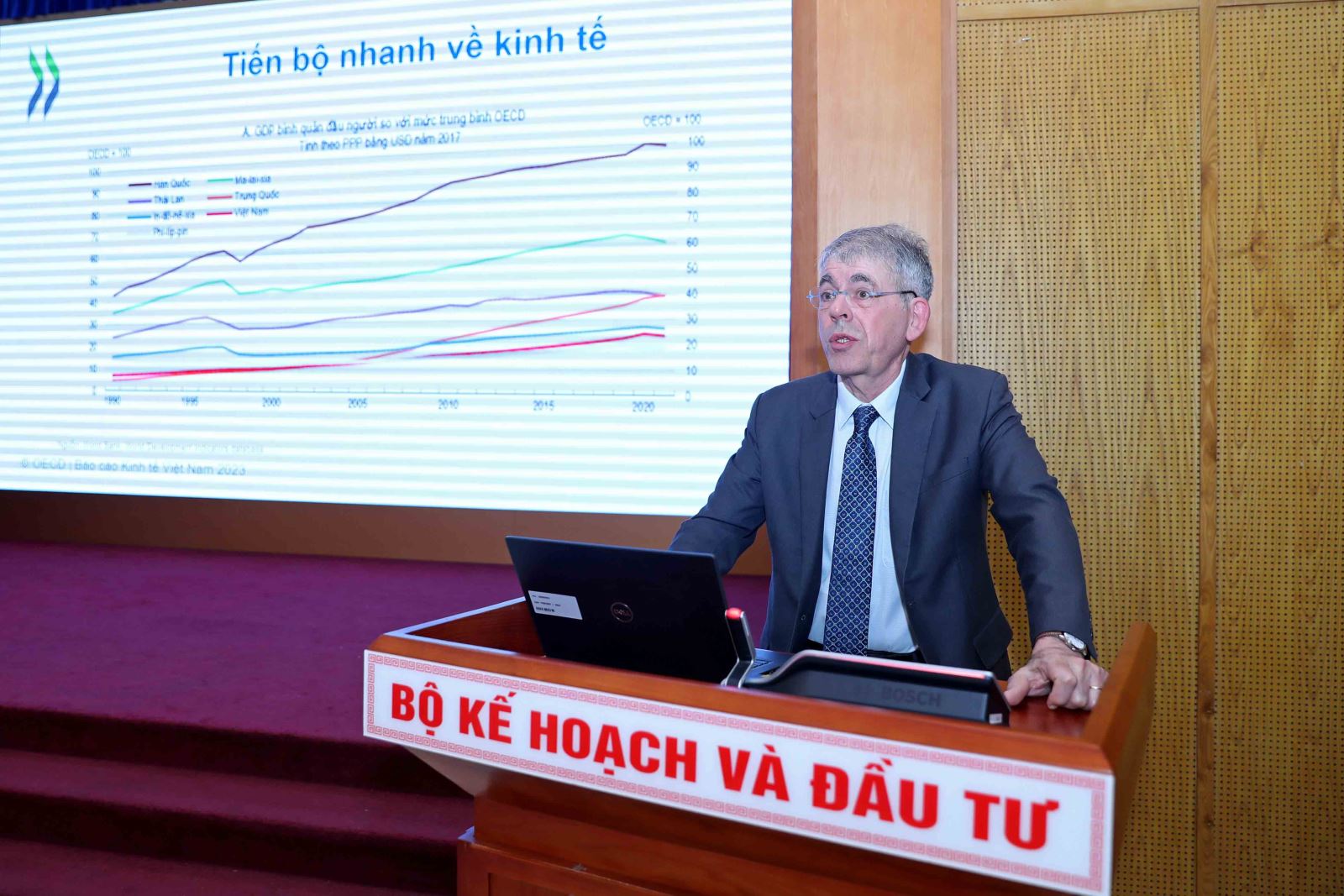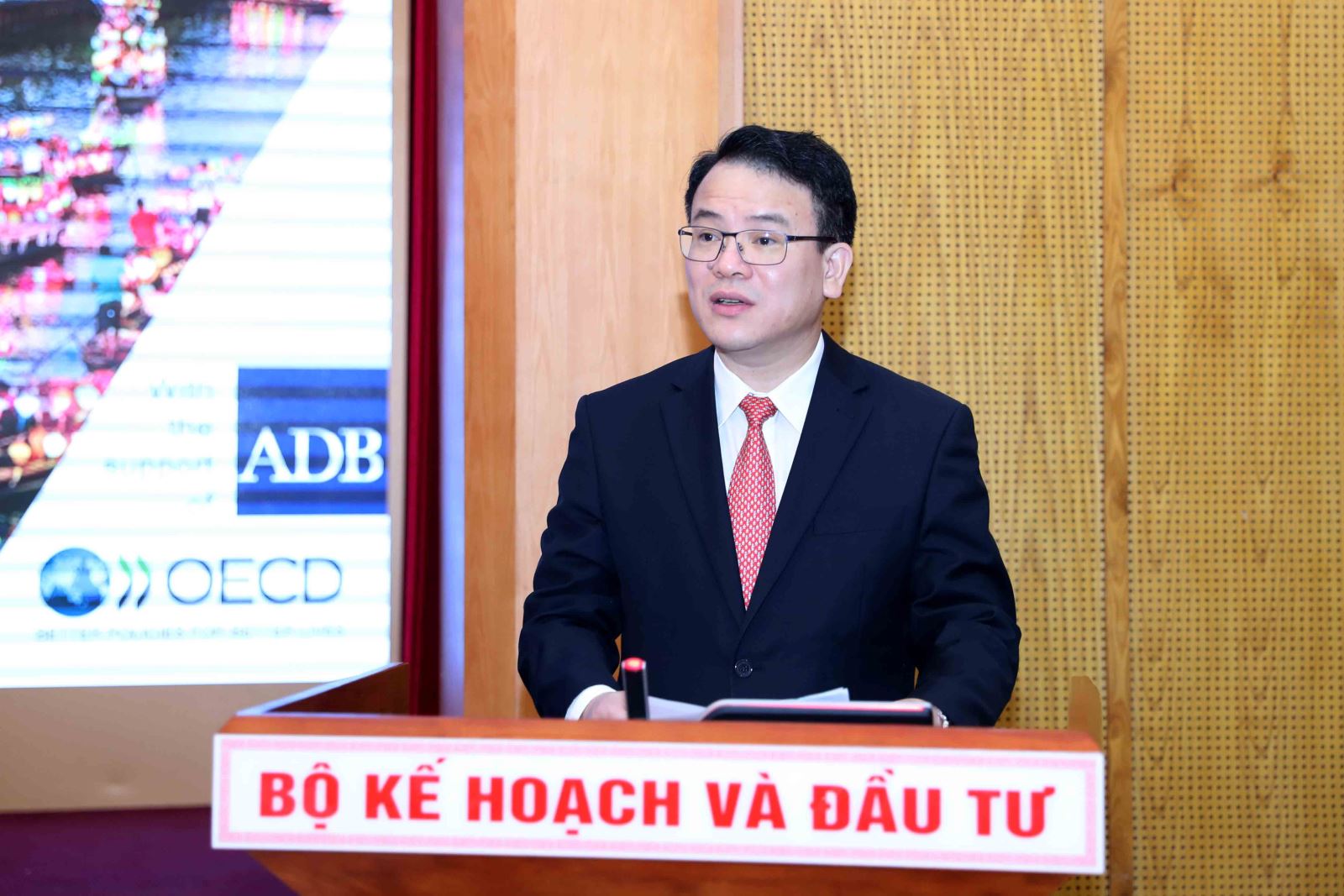OECD forecasts Vietnam’s GDP growth at 6.5% in 2023
Structural reforms would be key for Vietnam to mitigate the impact of geopolitical uncertainties and supply chain disruptions.
The Organization for Economic Cooperation and Development (OECD) forecasts that Vietnam's economy will continue to grow steadily in the near future, with estimated GDP growth of 6.5% in 2023 and 6.6% in 2024.
| Dr. Koen Vincent of the Economic Department at the OECD. Source: MPI |
The figures were released at the launch of "The OECD Economic Report: Vietnam 2023" on April 26, the first of its kind under the organization's collaboration with the Asian Development Bank (ADB).
At the launch, Dr. Koen Vincent of the OECD's Economic Department acknowledged Vietnam's impressive economic progress over the past few decades and its ability to maintain high growth rates, even in the face of the Covid-19 pandemic.
Vincent, however, also noted that the country's openness to the global economy makes it vulnerable to geopolitical uncertainties and supply chain disruptions, which could threaten its short-term economic recovery. To mitigate these risks and strengthen market forces, the OECD’s expert recommended that Vietnam undertake further structural reforms.
Among the priorities, Vincent suggested that Vietnam needs to transition away from fossil fuels by ceasing new investments in coal and expediting the implementation of a carbon market. Since these initiatives would require additional financial resources, the organization suggests that the tax base be broadened to increase government revenue, he said.
Echoing Vincent’s view, ADB’s Principal Country Economist Nguyen Minh Cuong called on Vietnam to establish mechanisms and favorable conditions to facilitate digital and green transformations.
Cuong notes that Vietnam is attracting a great deal of attention from investors interested in supporting these transformations, but accessing these external resources can be time-consuming for individual ministries and sectors.
"Therefore, it is crucial for the Vietnamese government to create conditions that allow for efficient absorption of resources," Cuong said.
The ADB representative also urges Vietnam to prioritize the disbursement of public investment capital, especially in light of the current congestion in the capital market. He emphasizes the critical role of public investment in promoting economic growth and reducing the burden on the banking system and capital markets.
| Vietnam's Deputy Minister of Planning and Investment Tran Quoc Phuong. |
Speaking at the event, Deputy Minister of Planning and Investment (MPI) Tran Quoc Phuong praised the high level of cooperation between MPI, OECD and ADB in their joint activities to produce the report.
Phuong described this cooperation as "unprecedented" and commended the experts from both organizations for their constructive input and honest exchanges.
"The report, with its constructive and objective assessments, will serve as a valuable reference for Vietnam in policy making," Phuong said.
The OECD Economic Report: Vietnam 2023 identifies macroeconomic policy as a key tool for Vietnam to strengthen the resilience of the economy.
In the short term, the priority is to mitigate the impact of high energy prices through targeted support to vulnerable households, rather than implementing further expansionary fiscal measures.
Over the medium term, the report highlights the need to strengthen the macroeconomic policy framework by improving fiscal sustainability through broadening the tax base. At the same time, it is necessary to strengthen the social protection system and reduce the size of the informal economy.
In addition, Vietnam needs to further improve the business environment and facilitate the digital transformation process to sustain high economic growth after the recovery.
The report also points out that to achieve the net-zero emissions target by 2050, Vietnam needs to maintain a high level of investment in renewable energy and pursue high energy efficiency. This can be achieved through a comprehensive policy approach that prioritizes effective public and private investment, establishes facilitating regulations, and creates a market pricing mechanism.














